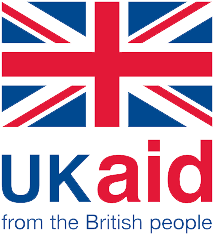Note: This year’s Global Landscapes Forum will pioneer an innovative format for launching concrete investment opportunities at a high level: the dragons’ den.
We bring together leading thinkers from finance, the corporate sector and landscape research. Here, organizations behind the launch will have the opportunity to pitch their investment opportunity to the experts and receive immediate feedback. After the pitches, organizers behind the launched initiatives will break out into separate rooms, where they can meet with interested investors and potential partners for focused discussions around the specific investment opportunity.
In order to achieve Land Degradation Neutrality (LDN) by 2030, there is a need to mobilize large amounts of financial resources for land rehabilitation and degradation avoidance.
In this context, the United Nations Convention to Combat Desertification (UNCCD), through its operational arm, the Global Mechanism, is taking up the LDN challenge by promoting the creation of an independent fund: the LDN Fund project.
After a rigorous selection process, the Global Mechanism selected Mirova, a management company of Natixis’ group dedicated to sustainable investment, as fund structuring partner and co-promoter of the LDN Fund. This collaboration will focus on the Fund’s investment strategy, governance structure, performance standards and mobilization of public and private capital to select and finance eligible projects. The LDN Fund intends to raise capital from public and private institutions and to directly or indirectly finance initiatives that promote land rehabilitation and sustainable land management in all countries.
The Fund will adopt a collaborative approach, complementing and leveraging existing initiatives. It is expected to partner with other fund managers and financial institutions, including local banks and microcredit agencies to increase scale and impact.
More generally, the Fund is expected to partner with all types of entities engaged in sustainable land management, ranging from consultants, corporates and development financial institutions to sub-national governments and national authorities, NGOs and organized local communities, cooperatives and farmers organizations among other local economic actors.
The co-promoters are currently assessing the feasibility of the LDN Fund and refining its investment strategy, to become operational by the end of 2016.
Background reading:
- Land Degradation Neutrality Fund project (White paper; 2016)












































